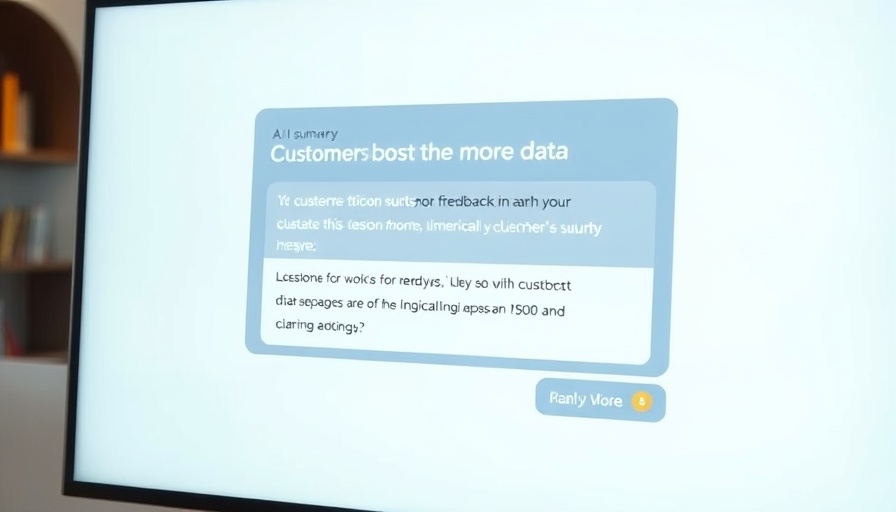
Elevate Your B2B Operations with the Right CRM Software
In today's fast-paced business environment, the use of Customer Relationship Management (CRM) software is critical, especially for B2B companies looking to excel. As a business owner in the $2M–$10M revenue range, choosing the optimal CRM system can significantly affect your operational infrastructure and overall growth trajectory.
What Makes B2B CRM Software Essential for Scaling?
For businesses seeking to scale operations and enhance productivity, a robust CRM not only helps in streamlining sales processes but also secures customer relationships through improved collaboration. These systems allow you to integrate various workflows, automate tasks, and manage your team's performance seamlessly.
Top 12 CRM Tools Worth Considering in 2025
While numerous CRM tools exist, here are the top contenders that align with your operational goals for 2025:
- HubSpot CRM: Ideal for its easy integration with marketing tools, offering streamlined product development processes.
- Salesforce: Recognized for its extensive customization options, enabling businesses to tailor workflows to specific needs.
- Pipedrive: Designed for sales teams, it emphasizes pipeline management with user-friendly interfaces.
- Zoho CRM: Offers a wide range of features at competitive pricing, making it suitable for startups and growing businesses.
- Freshsales: Focused on lead management and providing insight into customer interactions.
- Microsoft Dynamics 365: Integrates seamlessly with power tools, enhancing your existing technical stack.
- Monday.com: A versatile option that allows for project management and customer tracking from a single dashboard.
- Nutshell: Combines CRM and email marketing tools, streamlining processes for user engagement.
- Keap: Aimed at small businesses, it automates repetitive tasks to relieve workload.
- Salesflare: Particularly beneficial for small B2B businesses focusing on maintaining customer relationships without significant manual effort.
- Streak: Operates directly within Gmail, enabling effortless tracking of customer communication.
- Copper: Known for deep integration with Google Workspace, it offers a seamless experience for teams already using these tools.
Benefits of Integrating CRM Software for Your Business
Implementing a B2B CRM can lead to enhanced visibility into customer behaviors, more detailed analytics to drive better decision-making, and a reduction in operational chaos. By automating tasks and improving workflow management, these tools enable businesses to focus on what truly matters - growth and customer satisfaction.
Future Trends in CRM Software You Can't Ignore
As we move into 2025, keep an eye on trends such as AI integration for predictive analytics and personalized customer journeys. CRM tools are increasingly embedding artificial intelligence capabilities to not only streamline sales efforts but also to predict customer needs based on previous interactions—a game changer for sales teams focused on nurturing lasting relationships.
Your Next Steps After Choosing the Right CRM
After assessing which CRM aligns best with your B2B aspirations, prioritize onboarding processes and training for your teams. The effectiveness of a CRM system is only as good as how well your team utilizes it, but with the right onboarding, you can minimize the learning curve and maximize efficiency.
Conclusion: Taking Action to Scale
As a business eager to scale, understanding the impact of effective CRM software and choosing the right solution can drive significant returns. With so many options available, assess your specific needs, and invest in a tool that not only aligns with your goals but also simplifies your operations. It’s time to elevate your business with the power of CRM.
 Add Row
Add Row  Add
Add 



Write A Comment